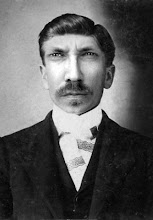
The movie was marketed and is probably best remembered as a Paul Newman vehicle, but the second Patricia Neal starts talking in Hud your attention shifts and the narrative reassembles itself around her so that you see everyone in the story through her eyes. Her screen presence is so striking you wonder why you haven't heard more about her.
She was a "patron" in Breakfast at Tiffany's. In The Day the Earth Stood Still, as in Hud and The Fountainhead, she played moral center. It was a role for which she seemed naturally well suited. In Tiffany's she exudes the same gravelly, shop-worn weariness, but applies it toward totally different ends, which is to say she plays high class instead of middle- to low-. The result makes what was virtuous in Hud and Earth seem vaguely tawdry. She still has the sass and everything she says feels ironic but there's no core there and she knows it, and all the sass puts that emptiness in quotation marks. No less calculating in A Face in the Crowd, she's at least trying to hide it from everyone else, exploiting the public's need to deny that empty core through Andy Griffith's podunk charm and street level charisma.
What the tone of her voice says in Hud is that people like Newman's character always get the attention, always charm people, sometimes even annoy or enrage them but always elicit their focus, either way, demanding and receiving the lion's share of the story; Neal knows it and even tells Newman as much, after he attempts to rape her and before she skips town. She's devoted herself totally to his family but she can see the insidious effect his relentless neediness and selfishness is having on his father and his nephew. After she gets on the bus, the father dies and the nephew leaves, too, lending a sense of prophetic wisdom to her character. Paul Newman locks himself in the house, asserting sole ownership of a big empty nothing. Neal's character in Hud is similar to Newman's, seeming at first its equal in smarmy insincerity. Both characters are sarcastic, even caustic. Neither shows much emotion. They play a game with each other this way and seem to be moving toward some sort of alliance, until Newman gets abusive, exposing their differences. He takes what he wants and doesn't much care. She takes what she's given and, remembering her place, pretends not to be bothered. By leaving, she exerts her independence, essentially taking an escape hatch out of the story. She's not about to stay aboard a sinking ship, and in fact when Newman closes himself in at the end, shutting the family home's door on the camera, the gesture is absolutely a termination. Following his story has lead to a dead end. Better to have gotten on the bus with Neal. Newman's smarmy veneer hides nothing but more guile, whereas Neal's is an intricate subterfuge.
Who knows what the personal events of her life had to do with the strength and depth of her performance here and in other films. She was married to writer Roald Dahl for thirty years. Hud was released in 1963. Three years earlier, the couple's infant son sustained permanent brain injuries when his carriage was run over by a New York City taxicab. Two years after this incident, their seven year-old daughter contracted measles and died. Breakfast at Tiffany's came out that year, and for many viewers, news of these tragic events must have infused her performance as a lonely, quietly desperate woman with a sense of authenticity the written role lacked. At 39 she suffered three strokes in one evening. Dahl helped nurse her back to health.
There's no doubt that the easy candor she displayed on screen had roots in her off screen, everyday personality. Speaking in an interview about Truman Capote, she said, "I met him at a couple of parties, but he didn't really talk much to me. He wanted rich ones to talk to..." trailing off in a knowing, good-natured giggle. She adored Lillian Hellman, thought Tennessee Williams was wonderful, found almost everybody delightful, whatever their professional shortcomings (Hellman? A brilliant playwright, but not such a great director). She loved Blake Edwards, the director of Tiffany's. She loved George Peppard, too, or had loved him, the first time they worked together. He wasn't crazy about his character being dominated by a woman. He pitched a hissy fit with Edwards and "I think he got his way, because I had a much better part than it was in the film, but he did not want ME to dominate him. I don't know what was wrong with him." Her, she just "[did] what's written."




No comments:
Post a Comment